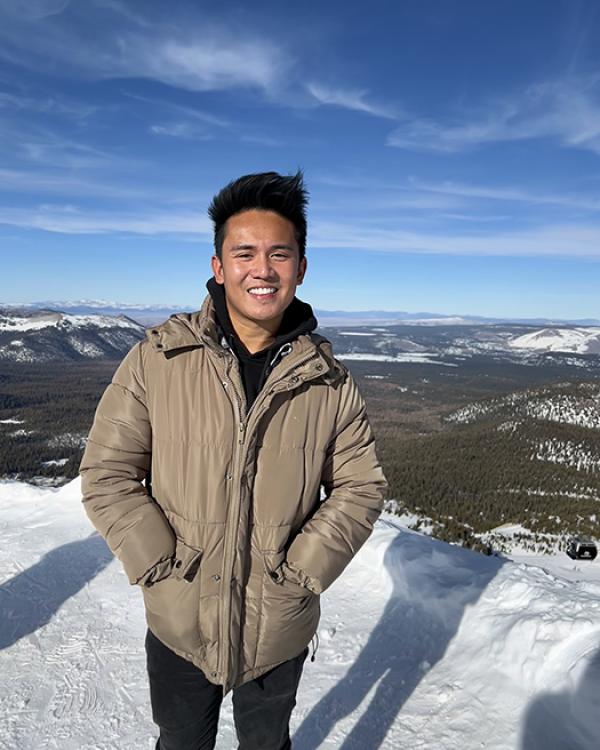
Royce Olarte has earned his MA on his way to a Ph.D. in the Department of Education with an emphasis in Mathematics Education. He is working with Dr. Sarah Roberts and broadly, his research interests are in the intersections of mathematics education, cognitive science, equity, and professional development in higher education. Royce received his BS in Mathematics from La Sierra University in 2017, and his MS in Mathematics for Teachers from Portland State University in 2018. There, he worked on curriculum development for multivariable calculus that integrated technology and active learning. Prior to attending UCSB, Royce was an adjunct mathematics professor, primarily teaching courses in pre-calculus, calculus, and data science.
GGSE: Your MA research explores self-regulation of undergraduate mathematics students in routine and non-routine proofs. What did you discover?
Olarte: I found that there were qualitative differences in how students cognitively and metacognitively engaged in routine and non-routine proof construction. They evoked more cycles of self-regulation in the non-routine proof, exhibited more negative affect, and used less procedural approaches. They also attempted to regulate the task in the non-routine proof to make it less cognitively demanding than in the routine proof. Overall, through the lens of cycles of self-regulation, we can examine various stages of students' proof construction efforts and identify the areas that may require more support.
GGSE: What is it you most love about teaching?
Olarte: My favorite part about teaching is being able to connect with students and support them beyond the academic content. Lately, I've been able to mentor some students in research endeavors, and this has been extremely rewarding and fulfilling.
GGSE: What are you most looking forward to as you move towards your dissertation work?
Olarte: I'm most looking forward to the actual research focus that I am pursuing for my dissertation work. Recently, I realized that graduate students' professional identity development and the pathways to the mathematics professoriate are research areas that I am extremely passionate about. I can't wait to really get into this work and see how it can impact the ways mathematics departments support their graduate students.
GGSE: Are there people at the Gevirtz School you would like to thank?
Olarte: I definitely want to thank Sarah Roberts for being my advisor. I also want to thank Chris Ograin and Yukari Okamoto for being in my IRP committee. Lastly, all the faculty that I have had the pleasure of working with--either in coursework or various research projects. They have inspired me and affirmed my career/research pursuits.